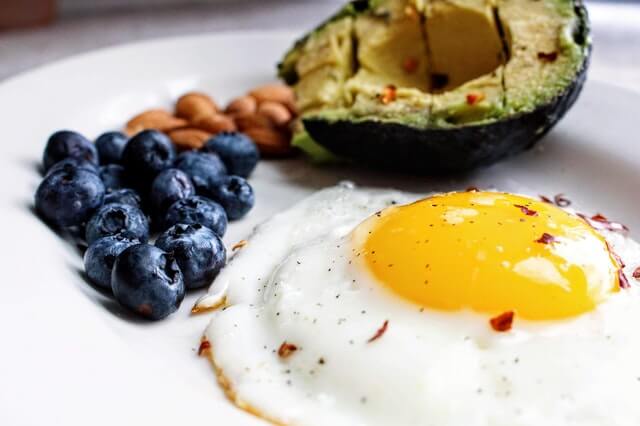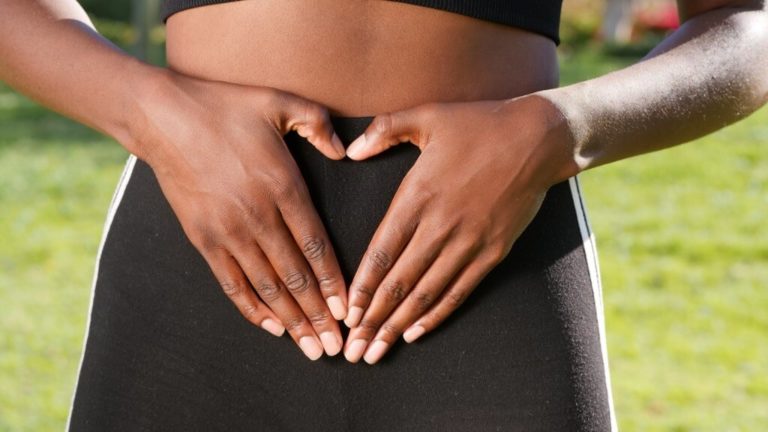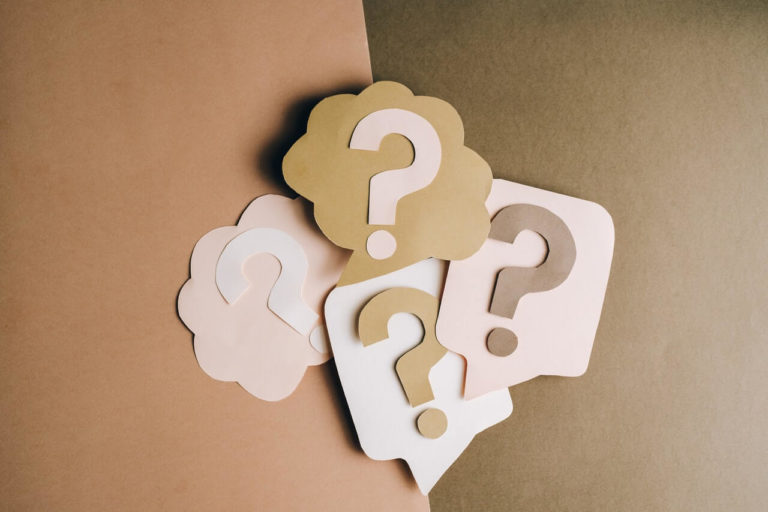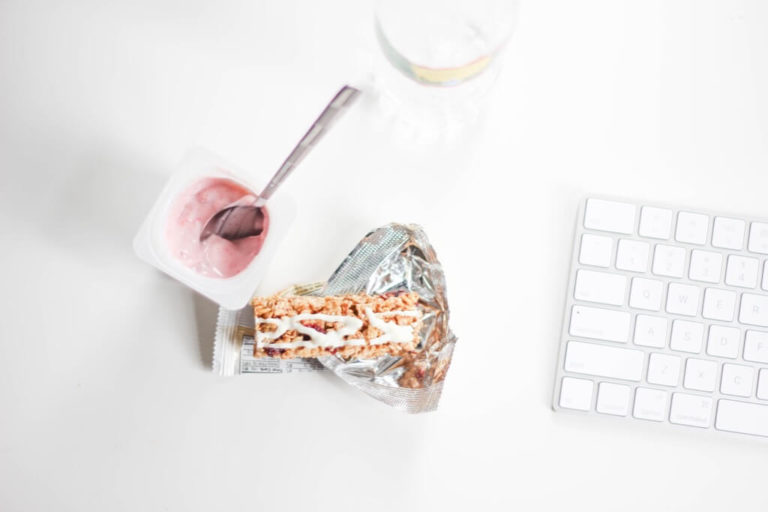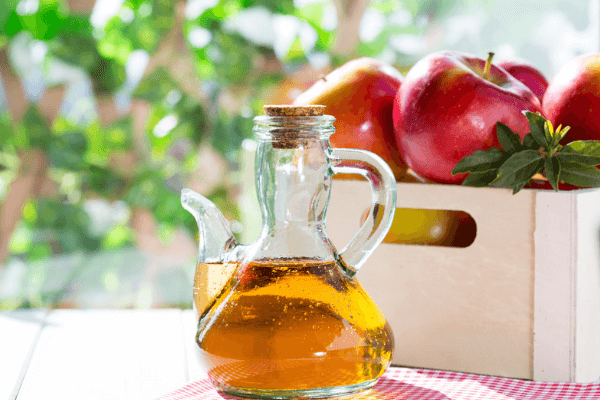HOW TO BREAK A FAST?
You’ve had an empty stomach for at least 16 hours and now you’re ready to eat. Is there an ideal way to end your fast and ease yourself into feasting? Religious fasting has a long tradition therefore I will include how some religions recommend ending their fast. I will also insert what the doctors recommend as well as a snippet from my own experience with specific foods.
To put your mind at ease, according to doctors, Dr Fung and Dr Pelz, no special precautions are required when you’re doing short daily intermittent fasting. According to Dr Fung, your digestive system should adapt within 4 weeks and no special meals are needed if you fast for less than 24hrs.
If you’re doing extended fasting, longer than 24hrs, then you might want to consider the following suggestions. By all means, this can be applied to daily intermittent fasting, especially if you struggle with digestive problems or cravings when you end your fast. These are not set in stone rules, only you can figure out what makes you feel good physically and mentally through experimenting.
PROTEIN
Some form of protein would be an ideal way to end a fast.
“Proteins are fundamental structural and functional elements within every cell of the body…”
The building blocks of protein, called amino acids, play an essential role in rebuilding and repairing cells and body tissue, ideal for replenishing your body after a fasting period whether you’re following a regular diet or a ketogenic, low carb diet.
EGGS
Eggs contain all essential amino acids and are easy to digest. The Jerusalem post lists eggs as “one of the easiest ways to restock your body with protein” in their article on how to break a Jewish religious fast Yom Kippur where worshipers fast from food and water for 24 hours.
This randomised controlled trial linked consuming eggs for breakfast (aka fast breaker meal) with
less variation of plasma glucose and insulin, a suppressed ghrelin response, and reduced energy intake.
In other words, people who consumed eggs as their first meal after an overnight fast, showed lower blood glucose levels, suppressed hunger and overall they ended up eating less food during the day, which is a great help if we’re trying to reduce our body weight.
On the The Fasting Method website, co-founded by Dr. Fung, there is a list of foods which might cause discomfort in some people if eaten as the first meal after a fast. The featured list includes eggs, although he does say to test it out for yourself and if you are fine with eggs, carry on eating eggs.
I personally find eggs to be a great fast breaker food. Easy to digest, satiating, easy to prepare, affordable, and most of all eggs don’t cause bloating or trigger cravings for junk or sugar. I also sleep very well when I eat eggs.
If you don’t eat eggs you can try plain greek yogurt, cottage cheese or lentils. Poultry and fish are also easily digestible options which can be added to salads or soups. Dairy is fine unless you’re lactose intolerant.
FERMENTED FOODS
Fermented foods contain probiotics, live microorganisms referred to as friendly bacteria, which have powerful benefits for the body. People with healthy gut generally do not experience any digestive discomfort when breaking a fast. Try and include some probiotic food in your daily diet whether you’re fasting or not; pickles, sauerkraut, kimchi, kefir, miso, tempeh, full fat yogurt, kombucha. Healthy gut is the foundation of a healthy body and mind.
VEGETABLES
The best vegetable meals to have after a longer fast would be soup or steamed/cooked vegetables. Vegetable or bone broth are also great options. Broth is an easily digestible, hydration and mineral restoring meal. You could make a big batch and freeze it in portion sizes to have it readily available. If you eat poultry, include some in your soup to cover your protein needs. If you are a vegetarian, include lentils.
Lentil soup is also the traditional fast breaker meal in religious Lent fast. Lent is a 40 day fasting tradition observed by the members of the Catholic, Anglican, Methodist and Protestant church. Worshippers fast from Monday to Saturday during the day and end their fast with an evening meal. Traditionally, it is recommended that the evening meal Lenten supper will be as simple as vegetarian soup and bread.
FRUIT
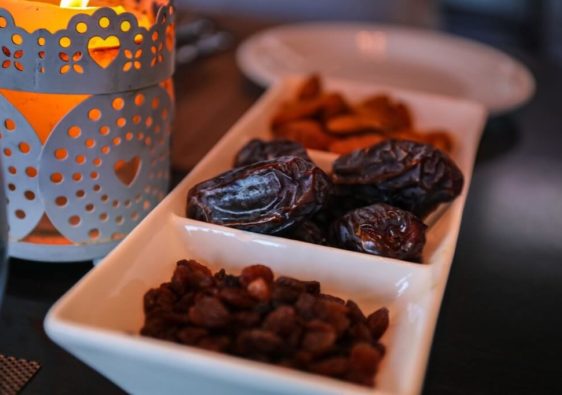
During the holy month of Ramadan, Muslims abstain from all food and drink during the day and break their fast after sunset with iftar. This meal usually consists of water and dates, followed by a dinner. You could also try dry apricots or rasins. Berries are also a good option.
On the other hand, the aforementioned Jerusalem post article on how to break a fast, states that fruit should be served as a dessert after a meal, although some high water content fruit, such as watermelon or grapes, may be a good choice to break a long fast.
Avoid citrus fruits on an empty stomach. Lemons, limes, oranges and fruit juices contain high amounts of citric acid which can cause heartburn and other discomfort. You can always have these after your main meal.
In my experience, high water content fruit on an empty stomach causes bloating and I also find that the sweet taste triggers my cravings for sugary food. For me, breaking a fast with fruit is a no go. I would save fruit for a dessert after my main meal.
NUT BUTTERS AND NUTS
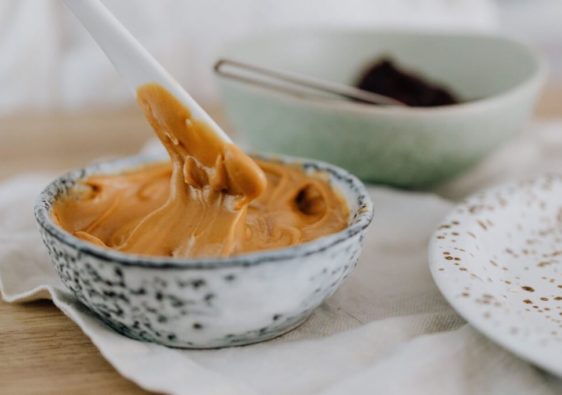
Dr Mindy Pelz recommends nut butters alongside avocados and olives as good fats to have after a fast.
In The Complete Guide to Fasting on page 238, Dr Fung suggests breaking a fast with a smal amounts of nuts, and a small amount of nut butter. On The Fasting Method website (which he co-founded), nuts and nut butters are featured on the list of items which should be eaten with caution, meaning some people have reported discomfort eating these foods straight after a fast. The featured list also includes eggs, raw vegetables and leafy greens (cooked are fine), dairy products (butter is fine), red meats and alcohol.
I have tried ending my fast with various nuts and to be honest, it didn’t make me feel good. Macadamia nuts where fine but brazil nuts made me feel nauseous when eaten on an empty stomach. A tablespoon of peanut butter works fine for me as well as dairy products; mozzarella, greek yogurt, kefir, butter coffee. I personally don’t enjoy eating raw vegetables unless they’ve been fermented or pickled.
FOODS TO AVOID
What not to eat is pretty straightforward and you don’t need to be an expert in nutrition to know this. Your first meal after a fast should NOT include any of the following: highly processed carbohydrates such as cakes, pastry, bread, junk food, chips, pasta, sugar confectionary, chocolate bars, fruit juices. Processed carbohydrates have high glycemic index, i.e. they cause a rapid rise in blood sugar, furthermore, most provide next to zero nutritional value and their consumption may also lead to bingeing and overeating. Obviously you wouldn’t want to end your fast with alcohol and ideally you want to wait 24 hours before you consume meat after and extended fast.
SUMMARY
HOW you end a fast is perhaps more important than WHAT you end your fast with, this applies to both; short and extended fasting. If you consume a large amount of food too quickly you are going to feel unwell regardless of what you’re eating. Preferably, you would end your fast with something small then wait for 30 minutes or so for your next meal. Eat smaller meals rather than 1 large portion. Eat only up to 75% fullness of your first day after an extended 72+ hr fast. Observe what is easy for you to digest and don’t stress about the rules. If you feel good, you’re doing it right.
- break your fast slowly with a small fast breaker meal followed by your main meal
- start with easily digestible foods (soup, broth, cooked veggies, eggs)
- experiment and observe how different foods make you feel
- observe cravings and eating afterwards
- avoid sugar and anything highly processed as your fast breaker meal
- save carbohydrates for later, this includes fruit and fruit juices
- avoid mixing fat with carbohydrates in your first meal, as this may lead to unnecessary fat storage
- protein seems to be the best choice for everyone regardless of the diet you follow
- include probiotics in your diet
- avoid fried foods as your first meal
Hope this was helpful to you xox

